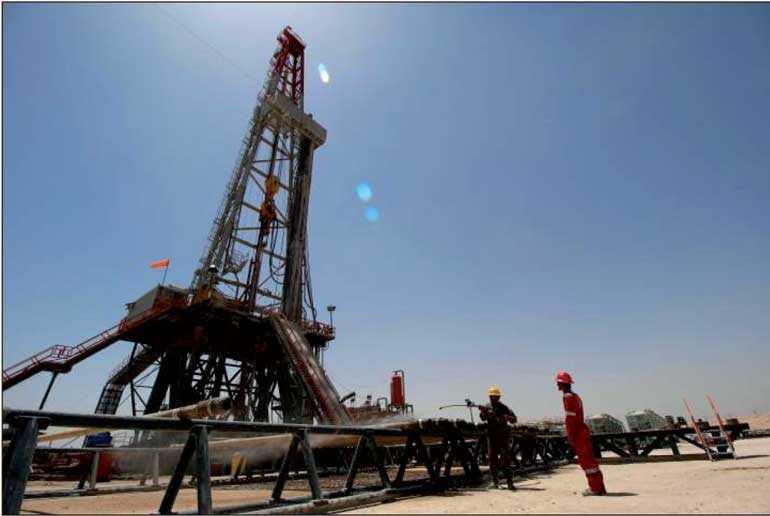Thursday Feb 19, 2026
Thursday Feb 19, 2026
Friday, 8 May 2020 00:00 - - {{hitsCtrl.values.hits}}

New York (Reuters): Oil prices climbed on Thursday, after Saudi Arabia raised official selling prices for its crude and a surprise rise in Chinese exports last month fed hopes for further rises in fuel demand.
US and Brent benchmarks have rallied sharply this week as countries have eased coronavirus-related lockdowns and fuel demand has rebounded modestly. Oil production worldwide is also declining to reduce a growing supply glut.
Brent futures rose $1.02, or 3.4%, to $30.74 a barrel by 11:10 a.m. EDT (1510 GMT), up about 16% so far this week. US West Texas Intermediate (WTI) crude rose $1.78, or 7.4%, to $25.77, on track for its highest close since April 6 and up more than 30% this week.
“Production cuts and soft re-openings all over the place are having the desired effects,” said Craig Erlam, senior market analyst at OANDA Europe.
On April 20, front-month WTI prices turned negative for the first time ever just before the May contract expired.
China’s oil imports climbed to 10.42 million bpd in April from 9.68 million bpd in March, according to Reuters calculations based on customs data for the first four months of 2020.
However, the country’s imports for all goods fell, suggesting any recovery is some way off as economies around the world fall into recession.
Saudi Arabia increased its official selling prices (OSP) for June after cutting May exports to almost the lowest in a decade following a deal by global producers to reduce output to prop up prices.
“The market sees this as a throttling-back of earlier aggressive discounts that were interpreted as the start of (the) price war, notably with Russia,” Harry Tchilinguirian, head of commodity research at BNP Paribas, said.
“Moreover, it is also likely seen as a strong indication that the Kingdom will follow through on its pledged supply cuts agreed at the 12 April OPEC+ emergency meeting.”
The Organization of the Petroleum Exporting Countries (OPEC) and allied producers - a grouping known as OPEC+ - agreed to cut production from May 1 by around 10 million barrels per day (bpd) to help support prices.
US jobless claims continued to rise, although at a slower pace with 3.2 million more people seeking unemployment benefits for the week ended May 2. The latest numbers lifted the total to about 33 million claims since March 21.